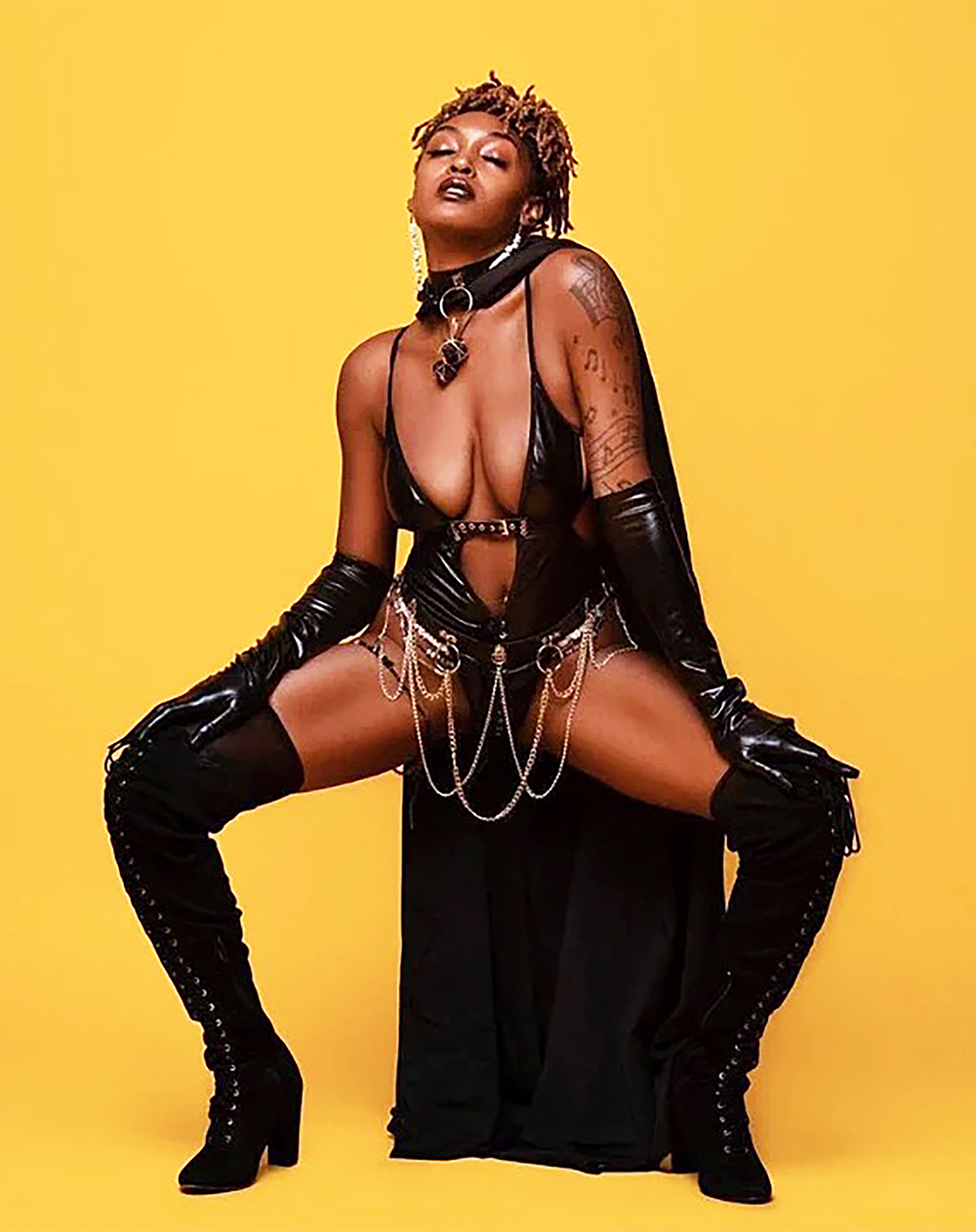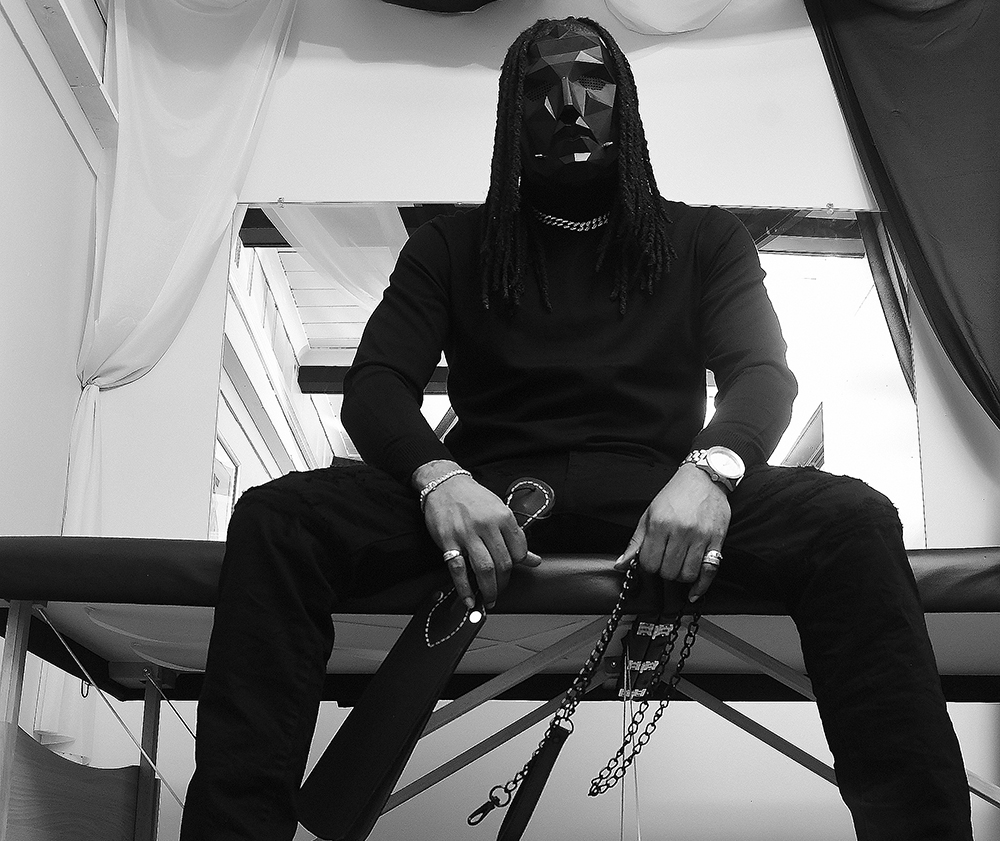Memphis has always been a kinky city full of kinky people. But it can be a challenge for adventurous Memphians to find safe spaces where they can express their sexual curiosities and fetishes without fear of judgment, exploitation, or worse.
This is especially true for members of our city’s marginalized populations: Black, Indigenous, and other people of color who are in search of sexual self-discovery in a state whose legislature recently tried to criminalize performing in drag. The stigma surrounding any sexual activity deemed abnormal or “prurient” leads to shame and exclusion.
But this weekend, Black kink is taking a big step into the Memphis mainstream, and you can be part of the conversation. Professional dominant and local fetish leader King Khan is hosting a panel discussion called BIPOC x BDSM: A KINKY CONVERSATION at the Medicine Factory in Downtown Memphis. He will be joined by guests with expertise in sexual freedom, healing, and therapy.
The stated goals of this panel are to demystify sexual fetishes such as bondage, dominance/discipline, submission/sadism, and masochism (BDSM) and to empower sexual subcultures in our city, especially for those of people of color.
For those who are unfamiliar with the idea of BDSM, think of it as erotic play that involves inequity of power. Some people play the role of doms while others are subs; some are tops while others are bottoms. Along the way, there’s plenty of voyeurism, taboo play, and, yes, whips and chains. But there’s much more than that.
“[At this panel], we can share our collective and individual lived experiences,” says Khan, who chooses to remain masked in public to keep his BDSM life separate from his everyday life. “We can learn from each other’s insights and journeys. We can support and lean on one another. We can occupy the locus of our own pleasure experiences, drive our sexual liberation, and be free to be ourselves. This panel is for us and is open to our community, co-conspirators, and allies.”
The panel on Saturday will be emceed by Phoenix, the Goddess, an educator and speaker specializing in creating a healing and sex-positive space for the curious.
It will also feature discussion from Phillis Lewis, CEO of the nonprofit organization Love Doesn’t Hurt, which aids members of the LGBTQ who are experiencing crisis.
Lewis, also known as Freak Nasty, has been hosting the quarterly Kink Night at Dru’s Place on Madison Avenue. She has been a familiar part of the Memphis kink community for over 20 years.

Also on the panel is Black Magick, an experienced tantric dominatrix priestess and healer. Black Magick specializes in a variety of safe sexual alternative practices and is also a burlesque dancer.
King Khan, the spokesperson for Saturday’s panel event, is also the owner and founder of MeetAtJewels, Memphis’ only Black-owned dungeon and play space.
MeetAtJewels hosts parties for those with an open mind about exploring their sexual lives in a judgment-free environment. They host all-night parties on a regular basis (you can find out when and where if you’re inclined at meetatjewels.com) where they also sell sex toys, give BDSM demonstrations, and host multi-room games. They recently celebrated their first anniversary with a rose ceremony play party.
BDSM demands informed consent from all partners, and the motto for the BDSM play at MeetAtJewels is “Keep it kinky, keep it classy, and keep it consensual.” Khan’s goal is to ensure a “safe, inclusive, and empowering space for Black, Indigenous, and people of color,” and he personally screens each member who wishes to join. He gets to know applicants and asks about each member’s boundaries before accepting them to the club. No member is required to participate in any activity unless they feel comfortable.
The panel discussion on Saturday is open to the “kinky BIPOC kinfolk” and their allies. Khan hopes it will be the first of a series of such discussions to bring kink to the mainstream and that this uncensored conversation will allow curious members of our majority-Black city to break down barriers around bondage play and other fetishes.
BIPOC x BDSM: A KINKY CONVERSATION will be held at the Medicine Factory on Saturday, March 30th, from 2 to 4 p.m.


